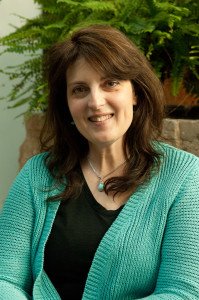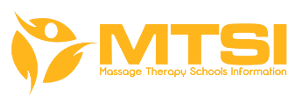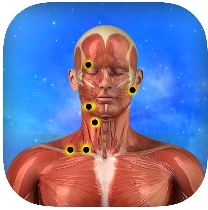
I live in McHenry which is Northern IL. I have a sole practitioner business specializing in Myofascial Release. I share office space with a Physical Therapist who practices traditional PT with Myofascial Release.
We operate our own practices, but collaborate. I also teach at a local massage school and have done so for 10 years. A small component of my practice is animal treatments, both canine and equine.
2. Tell us why you chose to go into massage and at what point in your life did you decide to do so? What were you doing at the time? Where did you first hear about the massage career? What factors influenced your decision? What were you looking to get out of this decision?
I had wanted to be a doctor, but instead of finishing college, I helped my mom take care of my father who was ill. After he passed, 4 years later, it seemed prohibitive to go back to that much schooling.
I discovered Chicago School of Massage Therapy about that time. I was always the person who would rub someone’s neck or shoulders, and it seemed right. I could take care of people, set my own schedule. Mind you this was 1985, and there was really no other option except for a private practice. There were a few clinics around, and I did work at one to start.
3. What were some of your questions and concerns before further pursuing your massage therapy goals? Talk about concerns with school and the profession itself.
In 1985, Massage Therapy still was greeted, at least in my area, with a nudge and a wink. I had to overcome and be a pioneer for the value of this kind of work. The school was over an hour’s drive away, and I needed to work full time.
4. What is your specialty and what are the top three contributing factors to your success today?
I specialize in Myofascial Release as taught by John F. Barnes. It is a therapy that helps my success because I mostly treat chronic pain clients. It is a highly effective treatment, gently helping someone to get out of pain. It has helped me get out of pain, and I credit the shift to this type of treatment as keeping me in this profession for 28 years.
5. What do you like about your specialty? What do you like about what you do in general as a career? Why?
I love my specialty because it first of all helped me with my battle with lifelong pain. I find it most effective in my client’s pain. In general, this contributes to liking what I do. This is a flexible career, allowing me to have adjusted my work load to my family needs, and for personal development.
6. What do you not like about what you do? Why?
As a sole practitioner, and teacher, there is a whole lot of things to do that are clerical, or business related. I have become adept at these things, some to a greater degree than others. I still don’t like some of them much.
7. If there were three things you could change about your work or the industry as a whole what would they be? Why would you change them? What would you change them to?
I am not sure I have ever thought about this. Off the cuff, the push for evidence based practices, Evidence informed, yes, we need to be a research literate group. Basing everything off research is a bit limiting, and often misses some wonderful therapies, that truly help someone.
8. How long do you plan to practice and what do you plan to do after?
So far 28 years. Not sure how long, or if I will ever completely retire.
9. Do you currently have another job or business whether full time or part time? Tell us a bit more about it and how you are able to juggle that with your massage career?
No Other than teaching this is a full time gig for me. It is enough to juggle.
10. What are some mistakes you made in your career pursuit that you’d like to warn other students about so they can learn from your experience and avoid it?
Be careful who you partner with. Do your business homework ahead of time. Schools usually do this well these days, but start out the way you mean to continue, even if it seems overkill to start.
11. What would you advice someone who is looking at massage therapy schools? What do you recommend they look for and how? How do you recommend they determine whether the school is the right one for them?
Look for an accredited school. Look at the pass rate for certification/ licensing exam. Ask to sit in on a class or two. Trust your gut feelings about your options.
12. What do you recommend for someone who wants to go to massage school but cannot afford it?
Look into community college based programs. In this state there are quite a few. In this way some financial aid will be available.
13. What are your three biggest points of advice for an aspiring massage therapist today? What should they do/not do? What should they think about and consider?
Cultivate a passion for your work, maintain the passion you feel in the beginning whether through continuing education or building the exact kind of practice that serves you. And most of all GET TREATED YOURSELF.
14. Any open thoughts / comments – anything else that you’d like to share about yourself, the massage industry, profession, future, etc?
If nothing, make one prediction for the future of massage? I would love to see more collaboration with other therapy professions. More brilliant, smart, caring massage therapists!
15. What is your passion outside of massage? What are your hobbies and interests which you pursue when you are not working? Tell us why you enjoy what you enjoy.
I like to bicycle ride, make jewelry, most anything outside. I spend a lot of hours in a small dimly lit room. Sunlight is good.
Ami Wilson Kalisek is a Licensed Massage Therapist. You can reach her on her website here.








Leave a Reply